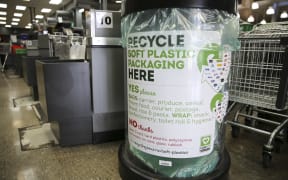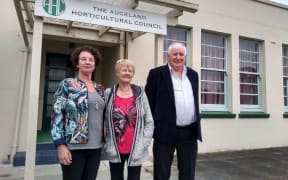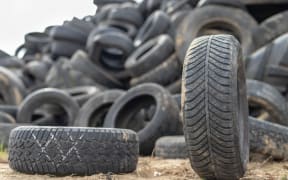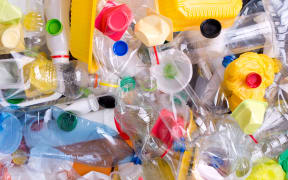The government has announced the next steps in its plan to recharge New Zealand's recycling.
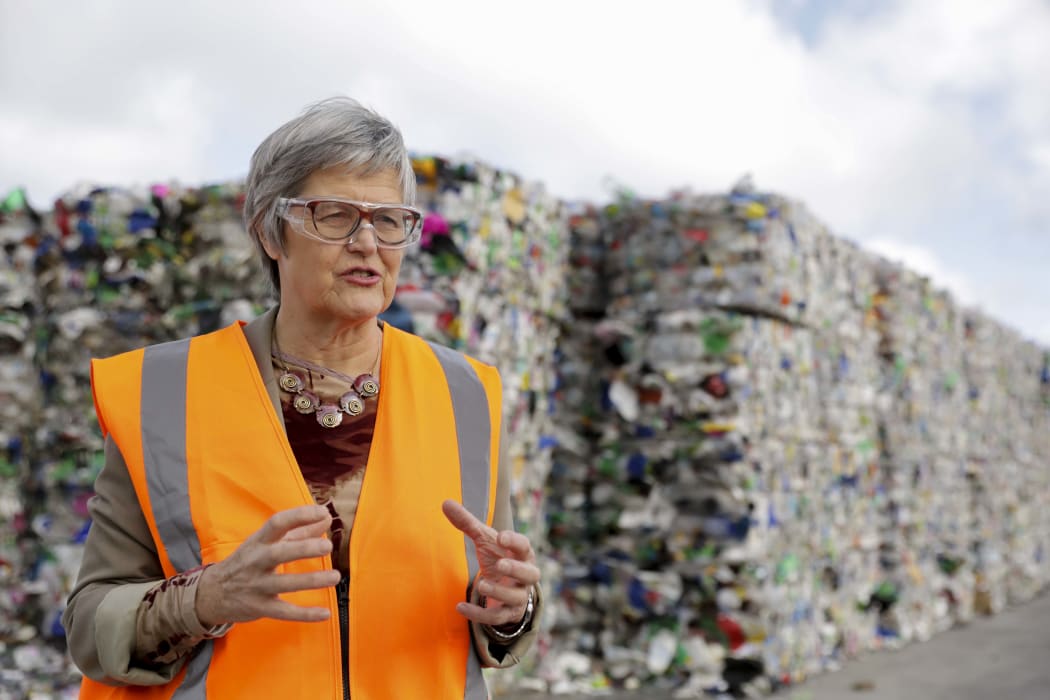
Associate Environment Minister Eugenie Sage says China's National Sword initiative had been a wake-up call that government needed to deal with waste in New Zealand. Photo: RNZ / Ana Tovey
Associate Environment Minister Eugenie Sage has revealed the recommendations of the taskforce set up last year to respond to the Chinese government's ban on the import of many recycling materials.
Ms Sage said the state had been sending waste issues offshore and China's National Sword initiative had been a wake-up call that government needed to deal with waste here in New Zealand.
China stopped taking in most types of plastics at the beginning of 2018, due to high pollution levels and environmental concerns.
The Ministry for the Environment figures show that in 2016 New Zealand sent $21 million worth of waste to China in 2016, made up of $8.2m of plastic, $3.1m of slag, and $9.7m of paper.
The ban saw stockpiling of recycling at facilities across the country, as companies were forced to find other markets to sell waste to, at greatly reduced prices.
"The taskforce looked at how our resource recovery system is functioning, how we can support more onshore processing of recyclables, and help New Zealand shift to a circular economy approach, where products are better designed so that more materials can be recovered and reused", Ms Sage said.
The Ministry for the Environment is adopting a number of the taskforce's recommendations into its current work programme.
These include:
- Identifying the gaps in materials recovery and waste infrastructure, where investment is needed.
- Reviewing kerbside collection and processing systems to identify how to increase the quality of recyclables and to ensure more materials can be recovered and recycled instead of going to landfill.
- Undertaking feasibility studies around how to increase New Zealand's fibre (paper and cardboard) processing and plastic reprocessing capacity.
- Examining how product stewardship for packaging can be used to ensure manufacturers consider what happens to packaging once a product is used by the consumer.
- Assessing the options for shifting away from low value and difficult to recycle plastics, such as single use plastic bags and other low volume and/or mixed materials. This could include regulations around ensuring plastic packaging is able to be recycled and/or to require a portion of recycled content in packaging.
- Running an education campaign to help New Zealanders "recycle right", and reduce the amount of recyclable materials going to landfill because of contamination.
- Developing model contracts for the sector to reduce contamination, increase transparency and to better accommodate fluctuations in market prices for recyclable materials.
- Developing a sustainable procurement plan and guidelines to encourage purchase of products made of recovered and recycled materials.
Ms Sage said the work programme builds on the government's previously-announced initiatives to expand the waste disposal levy to all landfills and to use mandatory product stewardship for problem products, like vehicle tyres and e-waste already underway.
Local government said it's ready to play its part in improving New Zealand's poor waste record.
One of the recommendations is the development of model contracts for councils and operators to ensure there's consistency about what can be recycled.
Local Government New Zealand metro chairman Greg Brownless said it made sense to have the same standards everywhere.
"Whether you're disposing or recycling in Auckland or the Bluff it doesn't really make any difference," he said.
"Also our communities are asking us what are we doing about ensuring recycling is a success.
"So I think that's a really good lead."
Mr Brownless said he hoped central government would take the lead on any added costs associated with recycling changes.
The National Party said the recommendations were a soft set of options that wouldn't address the issue.
Its environment spokesperson Scott Simpson said Ms Sage was good at the "eco-babble" but not at actually delivering.
"There's nothing new in any of this.
"These are all recommendations and projects that any competent Government should have been already working on.
"Environmentalists and citizens will be terribly disappointed with the lack of solid progress in this area," he said.
Mr Simpson said he was especially disappointed Ms Sage had refused to consider the introduction of a container deposit scheme, which would offer a tangible commitment to combating waste.

